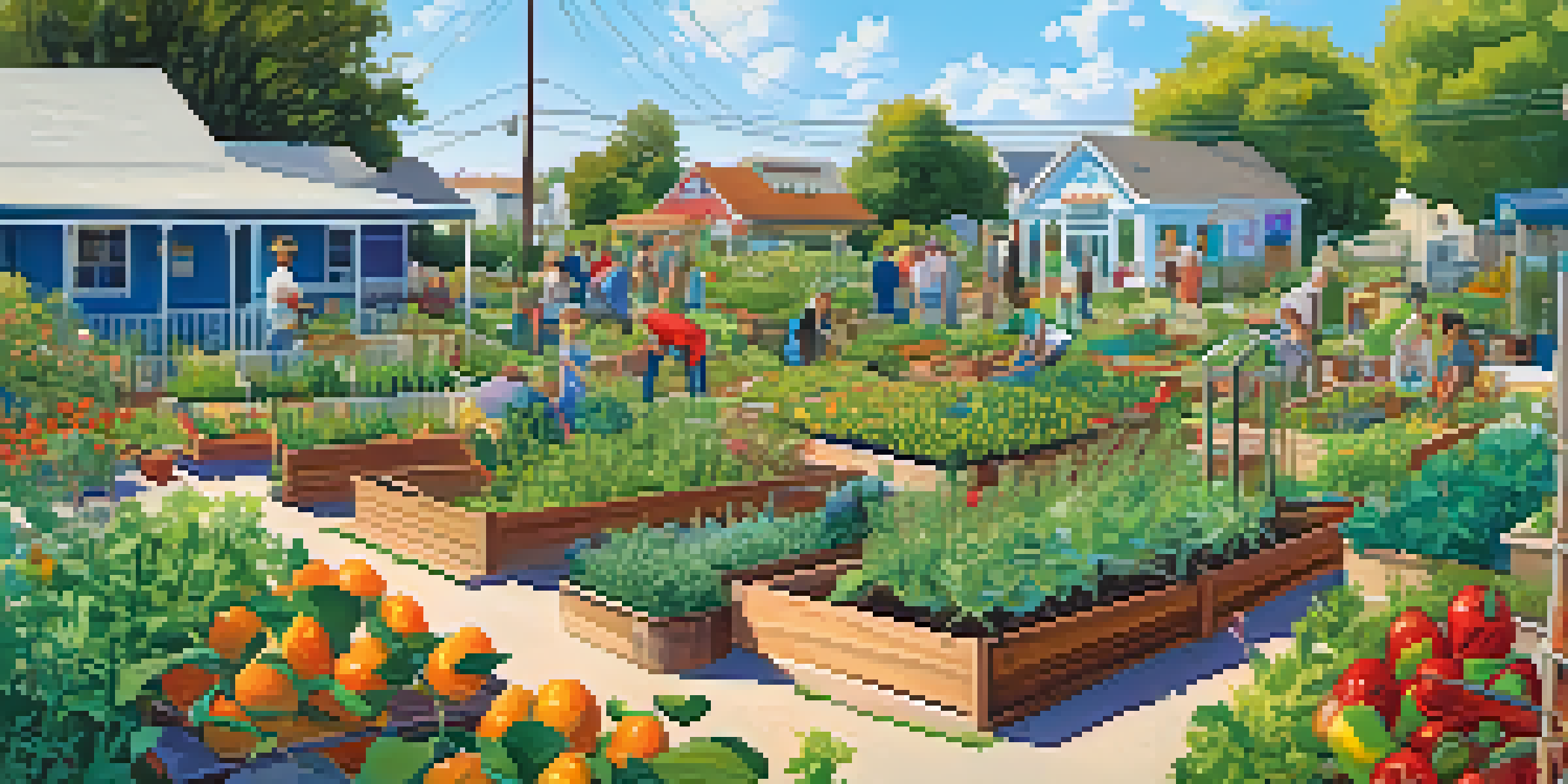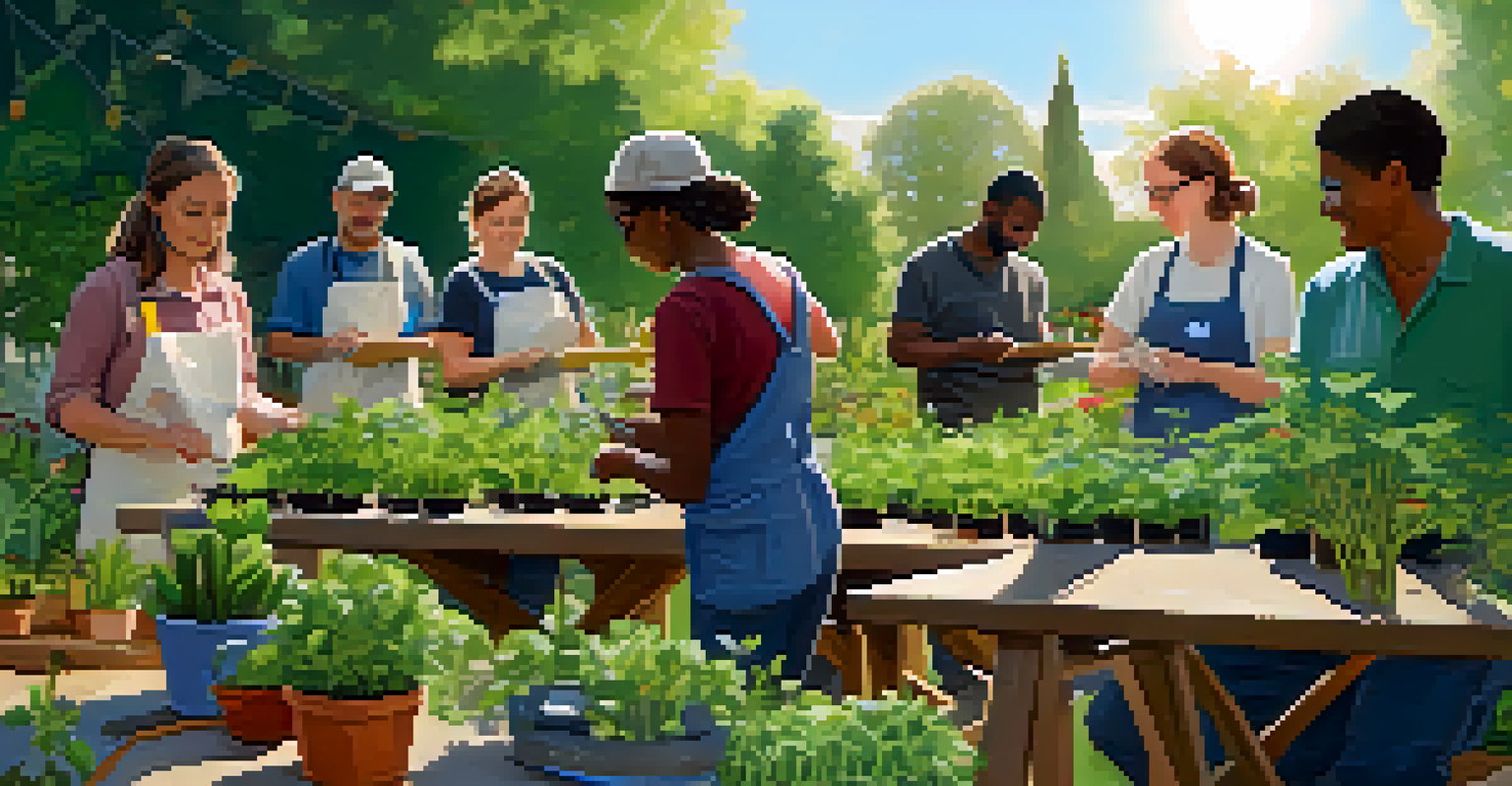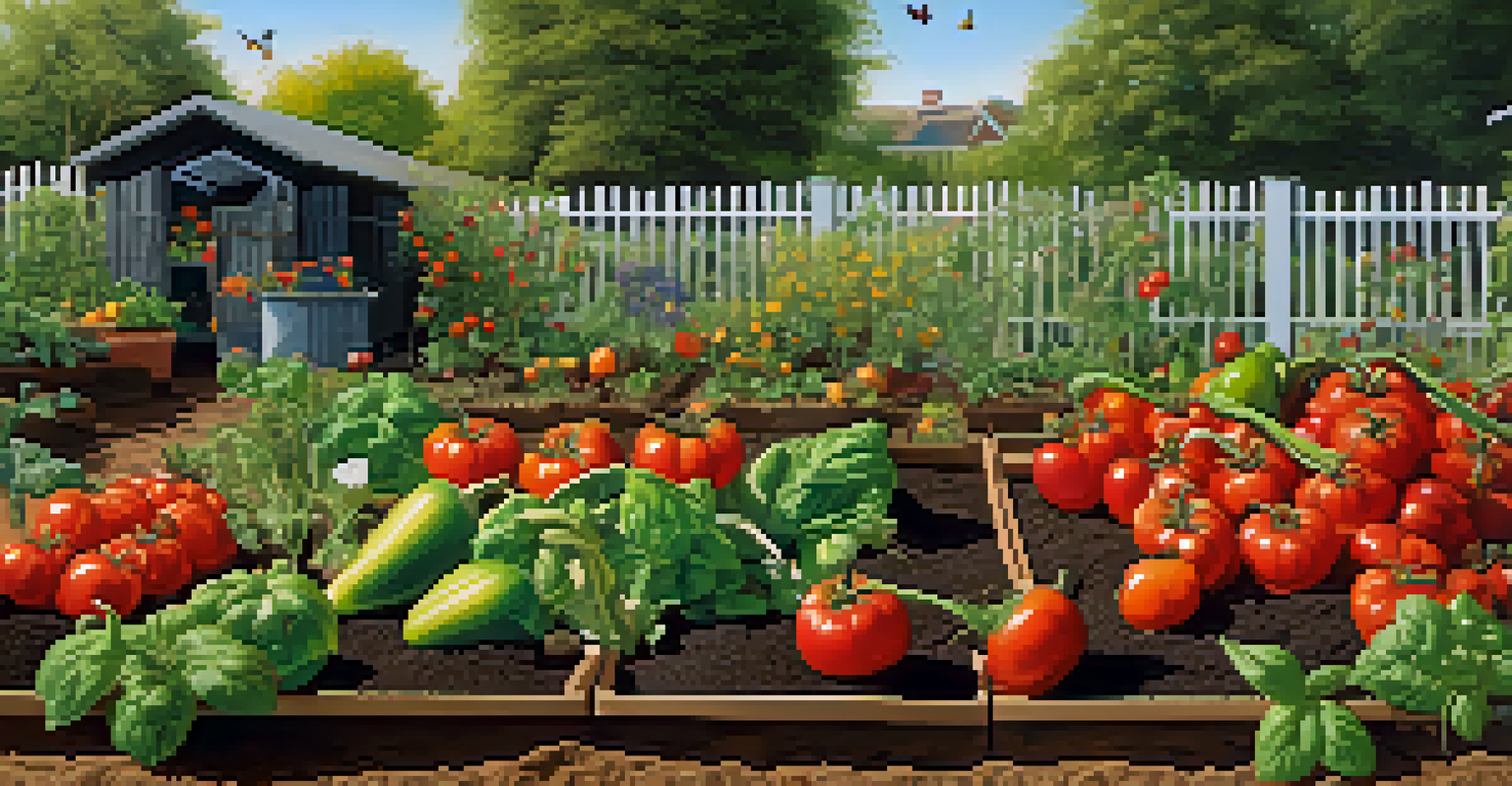Sustainable Practices in San Diego's Community Gardening Projects

The Importance of Community Gardening in Urban Areas
Community gardening plays a crucial role in urban settings, offering residents a chance to cultivate their own food. In a city like San Diego, where space can be limited, these gardens not only beautify the landscape but also enhance community ties. They provide a shared space for people to connect, learn, and grow together, promoting a sense of belonging.
Community gardening is a way to bring people together, foster community spirit, and create a sense of belonging.
Furthermore, community gardens contribute to food security, allowing individuals to access fresh produce without relying solely on grocery stores. This is especially vital in urban areas where food deserts can exist, leaving neighborhoods with limited access to healthy options. By growing their own fruits and vegetables, residents can make healthier choices and reduce their carbon footprint.
In essence, community gardening transforms urban spaces into vibrant ecosystems. It fosters a culture of sustainability and encourages individuals to take an active role in their food systems, leading to greater awareness of environmental issues.
Sustainable Gardening Techniques Employed
San Diego's community gardens utilize a variety of sustainable gardening techniques that minimize environmental impact. Techniques such as organic farming, permaculture, and companion planting not only promote biodiversity but also enhance soil health. By avoiding synthetic pesticides and fertilizers, gardeners contribute to a cleaner ecosystem.

Mulching is another popular practice in these gardens, helping to retain moisture in the soil while suppressing weeds. This reduces the need for excessive watering and labor, making it easier for gardeners to maintain their plots sustainably. Additionally, many gardens incorporate rainwater harvesting systems to use natural resources efficiently.
Community Gardens Enhance Urban Life
Community gardening fosters connections among residents, promotes food security, and beautifies urban spaces.
Overall, these sustainable practices not only yield healthier produce but also educate community members about environmentally friendly methods. By sharing knowledge and techniques, gardeners cultivate a more sustainable mindset that extends beyond the garden itself.
The Role of Biodiversity in Community Gardens
Biodiversity is a cornerstone of sustainable community gardening, enhancing resilience against pests and diseases. By planting a variety of crops, gardeners create a balanced ecosystem that supports beneficial insects and microorganisms. This diversity reduces the reliance on chemical interventions, leading to healthier plants and soil.
The future of our planet is in our hands, and sustainable gardening is one way we can make a positive impact.
In San Diego, many community gardens are designed to attract pollinators, such as bees and butterflies. By including native plants alongside traditional crops, these gardens not only support local wildlife but also improve crop yields through better pollination. This interconnectedness highlights the importance of biodiversity in both gardening and the broader environment.
Ultimately, fostering biodiversity within community gardens contributes to a more sustainable urban landscape. It encourages gardeners to adopt practices that protect local ecosystems, ensuring that their efforts benefit not just their own plots but the community as a whole.
Education and Workshops in Community Gardens
Education plays a vital role in the success of community gardening projects in San Diego. Many gardens offer workshops and training sessions that teach participants about sustainable gardening techniques, plant care, and environmental stewardship. These educational opportunities empower individuals to take ownership of their gardening efforts and share knowledge with others.
By fostering a culture of learning, community gardens become hubs for sharing ideas and best practices. Participants often come together to exchange tips on pest management, composting, and crop rotation, creating a rich tapestry of collective wisdom. This collaborative spirit not only strengthens the gardening community but also promotes sustainability.
Sustainable Practices Boost Biodiversity
Utilizing sustainable gardening techniques enhances biodiversity, which leads to healthier ecosystems and crops.
Moreover, these educational initiatives often extend beyond the garden itself, reaching local schools and organizations. By involving youth and diverse groups, community gardens help instill a sense of responsibility towards the environment and encourage future generations to continue sustainable practices.
Community Engagement and Volunteer Opportunities
Community engagement is at the heart of successful gardening projects in San Diego. Many gardens rely on volunteers to help with everything from planting to maintenance, fostering a sense of ownership and pride among participants. This hands-on involvement not only strengthens community bonds but also enhances the overall gardening experience.
Volunteering in community gardens can also be a transformative experience for individuals. It allows people from different backgrounds to come together, share their stories, and learn from each other. As they work side by side, they build friendships and create lasting connections, which can lead to stronger community support networks.
Ultimately, these volunteer opportunities promote inclusivity and diversity within the gardening community. They encourage people to contribute their unique skills and perspectives, enriching the gardening experience while also promoting sustainable practices.
Challenges Faced by Community Gardens
Despite their many benefits, community gardens in San Diego face several challenges that can impede their growth and sustainability. Issues such as limited funding, land access, and local regulations can make it difficult for these projects to thrive. Gardeners often have to navigate bureaucratic hurdles to secure land or resources, which can be frustrating.
Additionally, maintaining community engagement is an ongoing challenge. As seasons change and people's schedules vary, keeping volunteers motivated and involved can be tough. Community gardens must continually find creative ways to engage participants and make the gardening experience enjoyable and rewarding.
Education Fuels Community Engagement
Workshops and training in community gardens empower individuals and create a collaborative environment for sharing knowledge.
These challenges, while significant, can also lead to innovative solutions. By collaborating with local organizations and advocating for supportive policies, community gardens can find ways to overcome obstacles and continue to flourish.
The Future of Sustainable Gardening in San Diego
The future of sustainable community gardening in San Diego looks promising, with an increasing awareness of environmental issues and the benefits of local food systems. More residents are recognizing the importance of growing their own food and supporting sustainable practices, leading to a surge in community gardening initiatives. This growing interest reflects a broader shift towards eco-conscious living.
As technology continues to evolve, community gardens are also embracing innovative solutions. From using mobile applications for garden management to implementing smart irrigation systems, these advancements can enhance efficiency and sustainability. By integrating technology with traditional gardening practices, the future of community gardening can be both productive and environmentally friendly.

Ultimately, the ongoing collaboration between community members, local organizations, and city officials will shape the future of sustainable gardening in San Diego. By working together, they can create a vibrant network of gardens that not only enrich their neighborhoods but also contribute to a healthier planet.